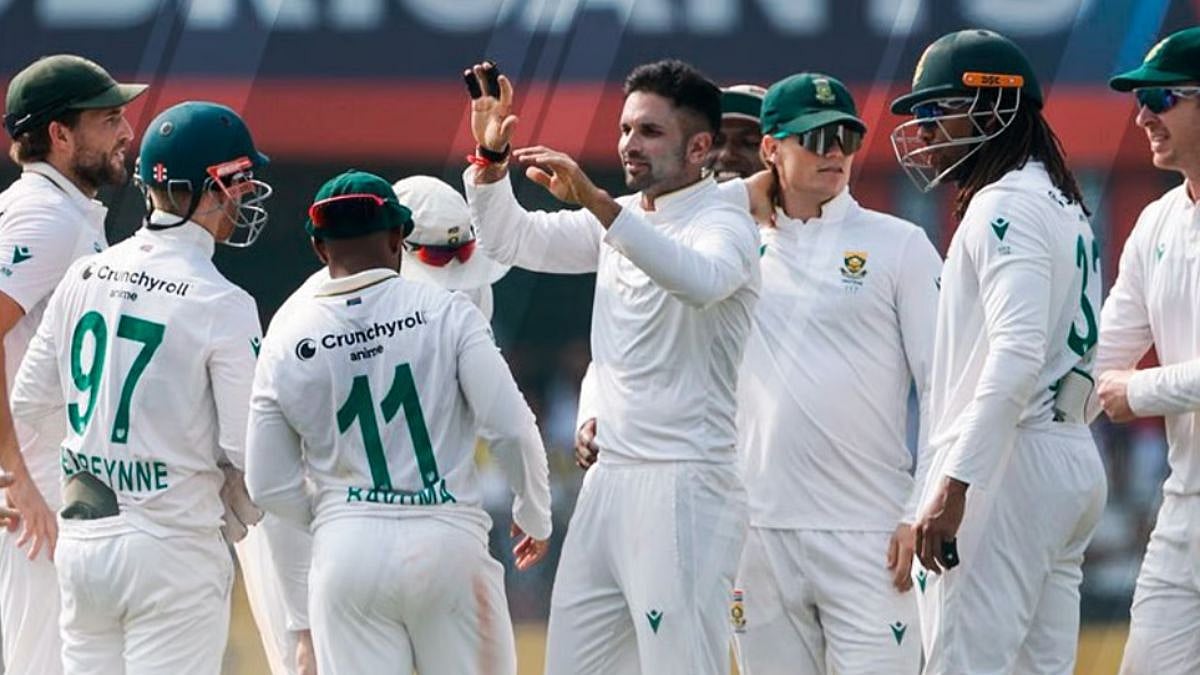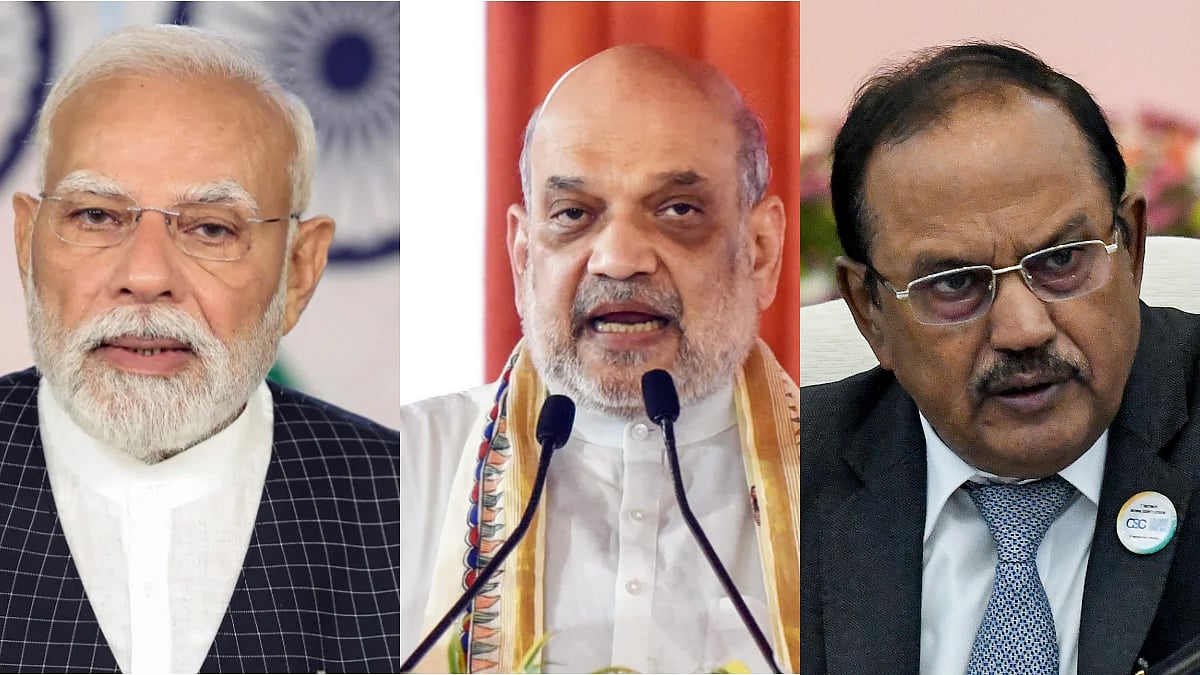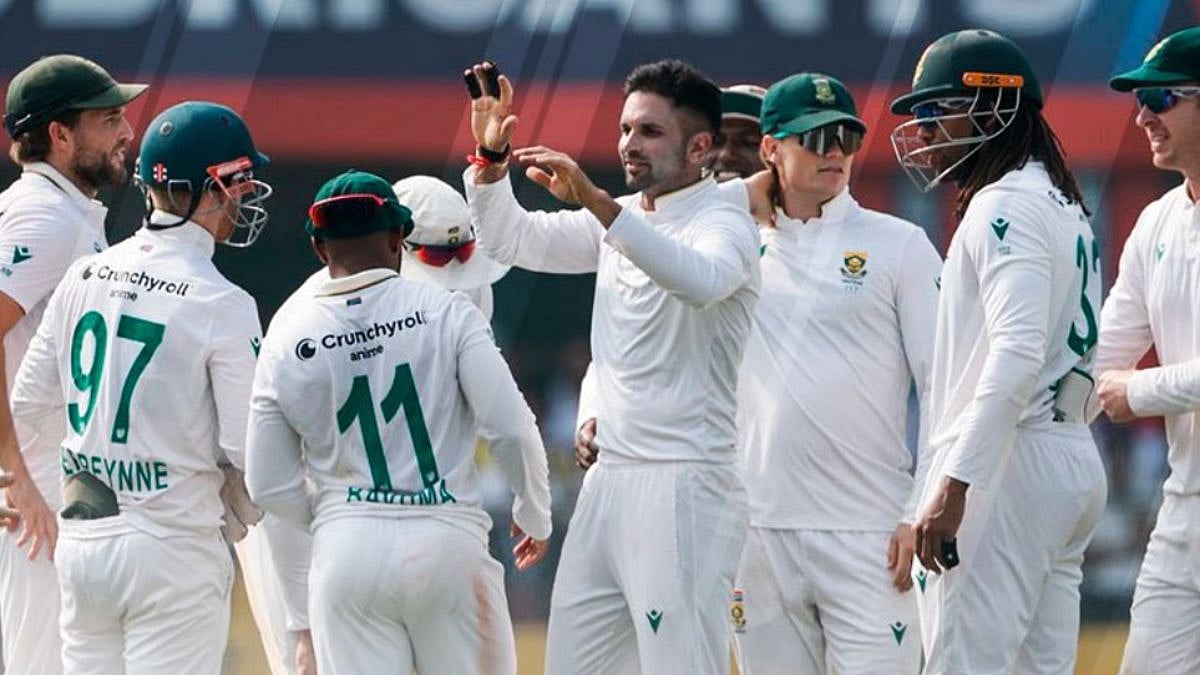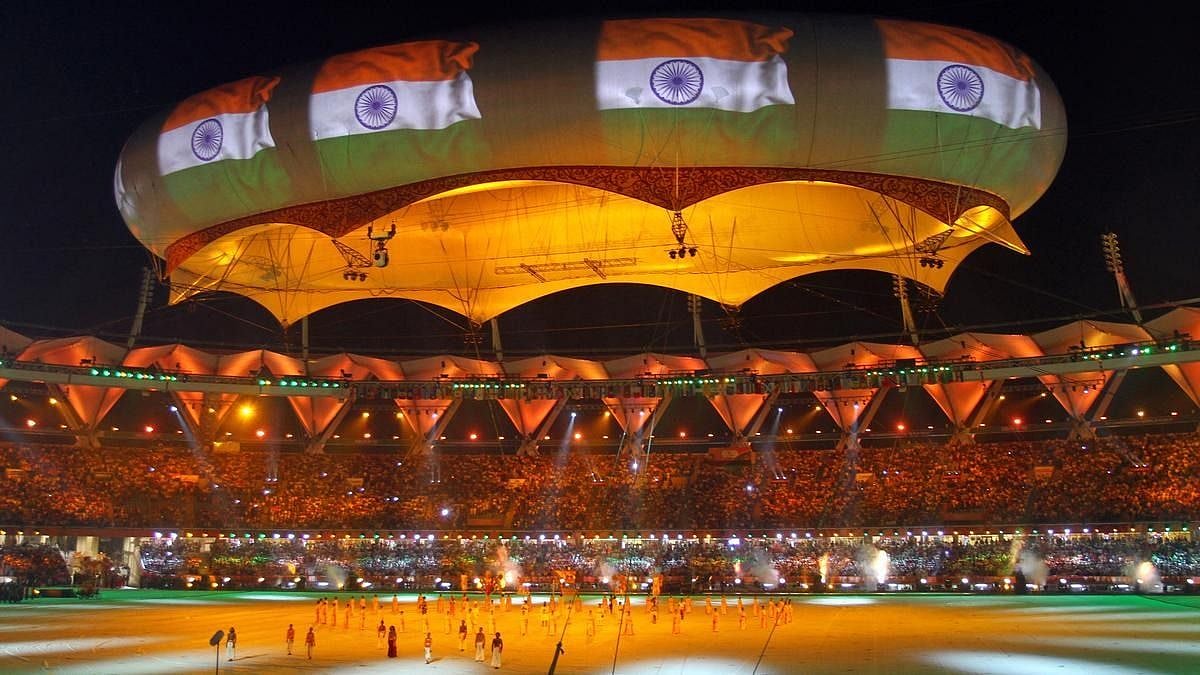The ghosts of Tony Greig and Hansie Cronje must be having a chuckle at the end of the second Test at Guwahati between India and South Africa, in which India were crushed by 408 runs to lose both Test matches in the short series.
It was 25 years ago that Cronje led his country to the same margin of victory—2-0—in what would be his last appearance for his country. It was not long after that Delhi Police went public with recorded phone conversations Cronje had with a known bookie that not only brought his glittering career to a shuddering halt but also ensured the entire cricket world would be plunged into crisis. This was the last time South Africa won a Test series in India before the dramatic events that unfolded in the Assam capital, resulting in the heaviest margin of defeat by runs for India in their Test history stretching back to 1932.
Greig and Cronje had much in common—both were inspiring leaders, both South African-born Whites and both highly polarising and controversial figures, though for differing reasons. While Cronje’s claim to infamy was his role in corruption in cricket, for Greig it was when, as captain of his adopted country of England, he made a notorious comment about making West Indies cricketers grovel just before Clive Lloyd led them on a tour of England in 1976.
Coming from the mouth of a White South African at the height of the hated Apartheid regime in South Africa, the words carried heavy racist overtones and only succeeded in motivating the West Indies to go extra hard at England, and their captain in particular, as they crushed their opponents 3-0. The West Indies were still recovering from a 5-1 hammering in Australia in 1975-76 and had narrowly beaten India 2-1 at home in a controversial series when they arrived in England.
Lloyd, through his fast-bowling trio of Michael Holding, Andy Roberts, and Wayne Daniel, unleashed a brutal assault on the shell-shocked English batsmen in a winning formula of all-out speed and intimidation which worked wonders for West Indies cricket for the next twenty years.
Greig’s racist words were deliberately echoed after the fourth day’s play at Guwahati by South Africa’s head coach, Shukri Conrad, at the press conference in reply to queries as to why his team had declared so late in their second innings, setting the home side their biggest target at home of 522 runs. With a healthy lead of 288 runs, the declaration came at 260 for 5 late on the penultimate day.
Conrad, a former first-class cricketer of mixed race (known in South Africa as Coloured), left no one in any doubt as to the intention and origin of his words when he stated, “We wanted them to really grovel, to steal a phrase.” He went on, “Their bowlers spent a lot of time out there. We saw the effects of batting for two full days in the first innings and what sort of effect it had on them.”
For some Indian reporters on the spot to claim the words were perhaps a slip of the tongue is ridiculous considering Conrad made it clear he was “stealing” the words. Though he did not mention Greig by name, anyone with even a rudimentary knowledge of cricket history would have immediately known from whom the “stealing” was from.
Conrad’s inflammatory statement has opened a “can of words” and inflamed social media, with South African and Indian cricket fans locked in bitter dispute over whether his words carry racial overtones, as did Greig’s.
The question then arises: can a POC (Person of Colour) be racist, especially a 58-year-old who suffered through the evil of Apartheid? While the jury is out on that, what is clear and beyond any logical argument is that the coach’s words were in very bad taste and unsporting in tone.
Such gloating can come back to haunt those who indulge in this and Conrad should remember that it was in June last year in Barbados that this same (more or less) Indian team had reduced his boys to blubbering wrecks when they were left shattered as they lost the final of the T20 World Cup that they had all but wrapped up. It meant the Proteas had once again choked in the knockout stage of a limited-overs World Cup. But there was no gloating and rubbing their faces in it from the Indian camp after the thrilling final.
Apologists from the South African camp point to Jasprit Bumrah referring to South Africa’s diminutive captain Temba Bavuma by the derogatory Hindi word for a short person in the first Test at Kolkata, a comment that was picked up by the stump mic, the bane of cricketers who sometimes are indeed guilty of a slip of the tongue in the heat of battle. It was heartening to see Bumrah with his arm round Bavuma’s shoulder in a show of apparent contrition at the end of the Test, which India lost by 30 runs.
No such excuse can be made on behalf of the coach, the senior-most member of the support staff who obviously came to the press conference armed with his verbal ammunition. And yes, Indians, a non-White race, have for centuries practised discrimination based on colour, creed, religion, and gender, with our sportspersons without exception. South Africa, too, with its Black majority, is not quite the Rainbow Nation as envisaged by their late legendary leader, Nelson Mandela. Black-on-Black violence is widespread in a country with one of the highest homicide rates in the world, and there have been attacks on Indian-run businesses as well as on poor migrant labour from neighbouring African countries. This unfortunate phenomenon is put down to ‘xenophobia’, which could be construed as another word for racism.
But at the end of the day, a senior cricket official like Conrad should understand that such words can cause great harm and even damage the cordial diplomatic relations between India and South Africa. An apology is thus in order, just as Greig did 49 years ago. Then the two great cricket nations can move on and put behind them this unfortunate episode that has sadly taken the spotlight off South Africa’s magnificent performance on the cricket field.
Gulu Ezekiel’s 19th and latest sports book is ‘Plucky 13: The Stories Behind Ranji Trophy’s Multi-title Winning Teams’ (Sachin Bajaj/GCS Publishers)









